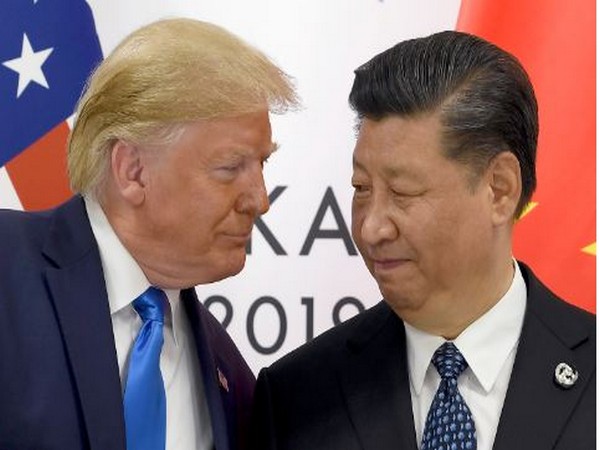Osaka [Japan]: Striking an optimistic note, the United States and China on Saturday decided to hold talks to reach a truce amidst the ongoing trade conflict between the two countries, saying dialogue is better than friction and confrontation.
During the much-anticipated meeting held on the sidelines of the G-20 Summit, US President Donald Trump and Chinese counterpart Xi Jinping agreed that it is in the benefit of both countries to cooperate.
“I will say that this can be a very productive meeting and I think we can go on to do something that will be truly monumental,” Trump said at the start of talks with President Xi.
Sitting in front of Trump, Xi said, “Mr President, you and I have stayed in close communication through phone calls and exchange of letters. Today I am prepared to exchange views with you on the fundamental issues concerning the growth of China and the US so as to set the direction for the relationship in the period to come.”
“But one basic fact remains unchanged — China and the US benefit from cooperation and lose in a confrontation,” he said, adding, “Cooperation and dialogue are better than friction and confrontation.”
Xi also recalled the spirit of “ping-pong diplomacy”, wherein in 1971, a match was held between Chinese and US table tennis players in Nagoya city of Japan, which was widely seen as a thaw in previously strained relations between the two countries.
“40 years ago, in 1971, in a place just over 100 kilometres from here, Chinese and American people participated in the 31st World Table Tennis Championships,” Xi said. “That marked the beginning of what we call ‘ping-pong diplomacy.’ The small ball played a big role in moving world events.”
Trump and Xi sat down for talks for the first time after talks to end trade war broke down in May.
“We’ve had an excellent relationship but we want to do something that will even it up with respect to trade,” Trump said.
Last month, the US President had imposed tariffs on USD 250 billion of Chinese imports and threatened to extend those to another USD 300 billion of goods, effectively everything China exports to the United States. China retaliated with tariffs on US imports.
Trade tensions between the two countries began when Trump said “very unfair” trade practices were undertaken by China against the US.
Extensive trade talks between Washington and Beijing began following a Trump-Xi meeting in November 2018 at the G20 in Argentina but unexpectedly collapsed in May, with both sides blaming one another.
[source_without_link]ANI[/source_without_link]

